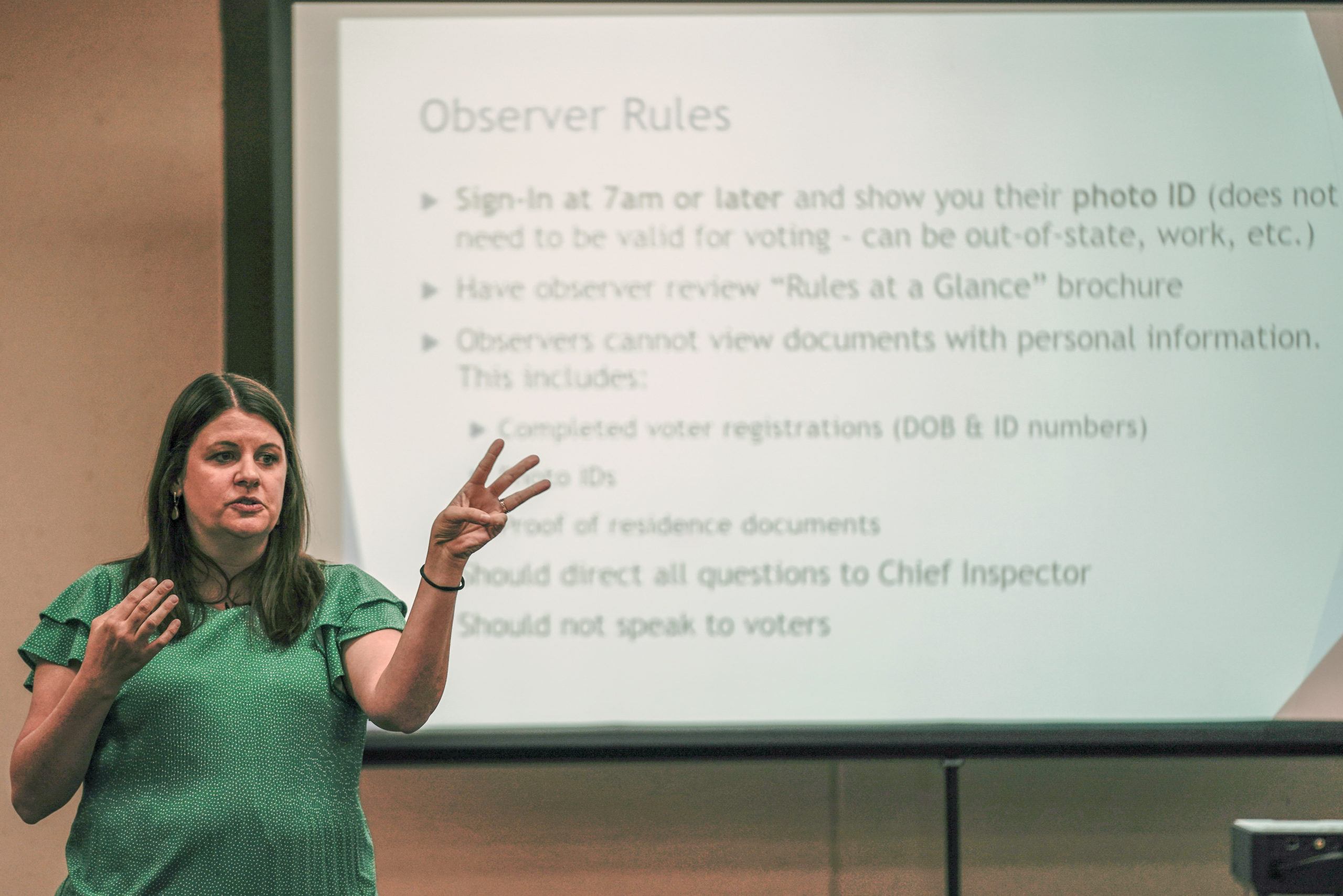No merit report bars subsequent appeal
By: dmc-admin//April 6, 2005//
The Wisconsin Court of Appeals held on March 30 that the procedural bar of State v. Escalona-Naranjo, 185 Wis.2d 168, 517 N.W.2d 157 (1994), may be applied when a prior appeal was processed under the no merit procedures of Rule 809.32.
Christopher G. Tillman pleaded no contest to three counts of first-degree recklessly endangering safety while armed, one count of second-degree recklessly endangering safety, and one count of possession of a firearm, and the State dismissed the habitual offender allegations. Racine County Circuit Court Judge Emmanuel Vuvunas sentenced Tillman to 29 years in prison.
The charges arose out of an armed robbery and street chase during which Tillman fired a gun at the robbery victim, and one other person.
Tillman filed a timely Notice of Intent to Pursue Postconviction Relief, and his appointed counsel filed a Notice of Appeal indicating that he anticipated filing a no merit report pursuant to Rule 809.32. Counsel filed a no merit report, addressing whether there was any basis for Tillman to withdraw his pleas, and whether the trial court properly exercised its sentencing discretion.
Tillman filed a response, questioning whether there was a factual basis for his pleas. In an unpublished slip opinion, the court of appeals concluded there were no arguably meritorious issues for appeal, and affirmed the judgment of conviction.
Acting pro se, Tillman filed a postconviction motion, seeking sentence modification on the grounds that the State improperly charged him as a repeater. The trial court denied the motion, and Tillman appealed. The court of appeals again affirmed, in a summary order, because Tillman was not actually convicted as a repeater.
Tillman then filed another postconviction motion, seeking to vacate his sentence on double jeopardy grounds. Judge Allan B. Torhorst addressed the merits, but denied the motion without a hearing. Tillman appealed, and the court of appeals affirmed in a decision by Judge Neal P. Nettesheim.
|
What the court held Case: State of Wisconsin v. Christopher G. Tillman, No. 04-0966. Issues: Does the procedural bar of Escalona-Naranjo apply when a prior appeal was processed under no merit procedures? Holding: Yes. A no merit appeal bars subsequent appeals which raise the same issues or other issue that could have been previously raised. Counsel: Christopher Tillman, pro se, for appellant; Robert S. Flancher, Racine; Warren D. Weinstein, Madison, for respondent. |
The court agreed with the State instead that Escalona-Naranjo applies to no-merit appeals, and that Tillman’s claims are therefore barred.
The court noted, "in some facets, the no-merit procedure affords a defendant greater scrutiny of a trial court record and greater opportunity to respond than in a conventional appeal. As with a conventional appeal, appellate counsel examines the trial court record for potential appellate issues. However, the defendant in a conventional appeal does not receive the benefit of a skilled and experienced appellate court also examining the record for issues of arguable merit. Instead, the court’s role in a conventional appeal is limited to addressing the issues briefed by appellate counsel. Nor, as a general rule, is the defendant in a conventional appeal permitted to separately weigh in by raising objections to counsel’s brief or by raising additional issues. Contrast the no merit process which allows the defendant to respond to appellate counsel’s no merit report. As noted earlier, the no merit process ‘necessarily implicates the merits of an appeal’ because the premise of appellate counsel’s motion to withdraw following the filing of the no merit report ‘is that the appeal is frivolous.’"
Accordingly, the court held, "We therefore reject any notion that the no merit procedure is too perfunctory as a matter of law to permit the application of Wis. Stat. 974.06(4). We conclude that when a defendant’s postconviction issues have been addressed by the no merit procedure under Wis. Stat. Rule 809.32, the defendant may not thereafter again raise those issues or other issues that could have been raised in the previous motion, absent the defendant demonstrating a sufficient reason for failing to raise those issues previously."
The court added that the procedural bar of Escalona-Naranjo is not an ironclad rule, and that an issue that has been waived can nevertheless be addressed by the court in its discretion. The court also stressed that, in considering whether to apply the procedural bar of Escalona-Naranjo in a given case, both the trial and appellate court must pay close attention to whether the no merit procedures were in fact followed, and whether, even if the procedure was followed, it carries a sufficient degree of confidence warranting the application of the procedural bar under the particular facts and circumstances of the case.
Turning to the issue of whether the bar should apply in this case, the court concluded that it should.
| |
||
|
Related Links Related Article |
||
| |
||
Tillman claime
d that, because the complaint identified only two specific victims of the shooting, and the third was identified as "name unknown," the third charge was multiplicitous. The court noted, however, that, although the no merit decision did not address double jeopardy, the no merit report and Tillman’s response did address whether there was a factual basis for the third charge of recklessly endangering safety, even though the victim was not specifically identified.
Also, the court in the no-merit decision found that the third charge of recklessly endangering safety was "supported by the time of day and the residential nature of the neighborhood — members of the public were conceivably in the vicinity of the gunfight, and their safety was endangered by Tillman’s reckless conduct."
The court thus concluded, "This history reveals that Tillman’s current phrasing of his grievance in terms of double jeopardy and multiplicity is simply a resurrection of his prior arguments under new labels."
Because the only reason Tillman offered for not previously raising the issue in terms of multiplicity is that his trial counsel was ineffective, and the no merit report specifically rejected that claim, the court found that Tillman failed to present a sufficient reason for not previously raising the issue, and affirmed.
Click here for Case Analysis.
David Ziemer can be reached by email.
Legal News
- Dane County residents encouraged to weigh how to spend federal funds
- Jurors should have considered stand-your-ground defense in sawed-off shotgun killing, judges rule
- Money isn’t enough to smooth the path for Republican candidates hoping to retake the Senate
- Milwaukee election leader ousted 6 months before election in presidential swing state
- Former President Trump calls for arrest of special prosecutor Jack Smith
- Wisconsin judge dismisses lawsuit challenging state’s new wolf management plan
- Wisconsin Supreme Court issues opinion on Milwaukee Police officer fired over Facebook posts
- Gov. Evers Seeks applicants for Menominee County Register of Deeds
- Donald Trump calls Joe Biden weak on antisemitism, ignoring his own rhetoric
- Gov. Evers again calls Republican lawmakers into special meeting
- CIA is obstructing justice and witness tampering in Havana Syndrome cover up, attorney says
- Wisconsin Supreme Court will decide whether mobile voting sites are legal
WLJ People
- Power 30 Personal Injury Attorneys – Russell Nicolet
- Power 30 Personal Injury Attorneys – Benjamin Nicolet
- Power 30 Personal Injury Attorneys – Dustin T. Woehl
- Power 30 Personal Injury Attorneys – Katherine Metzger
- Power 30 Personal Injury Attorneys – Joseph Ryan
- Power 30 Personal Injury Attorneys – James M. Ryan
- Power 30 Personal Injury Attorneys – Dana Wachs
- Power 30 Personal Injury Attorneys – Mark L. Thomsen
- Power 30 Personal Injury Attorneys – Matthew Lein
- Power 30 Personal Injury Attorneys – Jeffrey A. Pitman
- Power 30 Personal Injury Attorneys – William Pemberton
- Power 30 Personal Injury Attorneys – Howard S. Sicula











